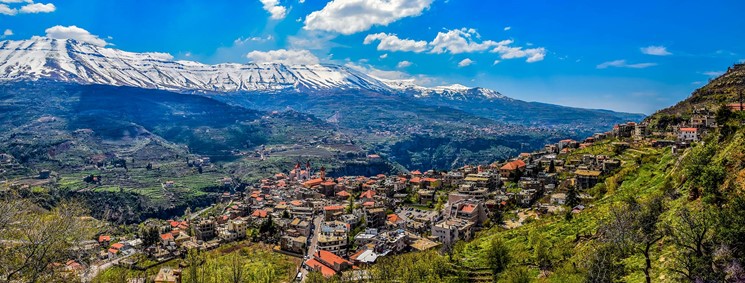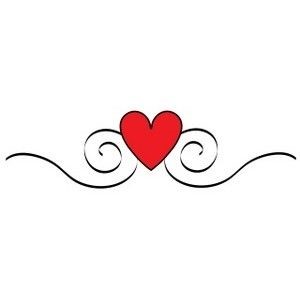
Bambi had the pleasure in interviewing Alan from Atlantic Canada who recently visited Lebanon for the first time of his life. Before sharing the interview with you, a few words about Alan. He is wonderful guy with excellent general knowledge and impressive linguistic skills. Indeed, this English-speaking Canadian from New Brunswick speaks and writes perfect French. He even has a sharp sense of humour in the beautiful language of Molière. Of note, Alan speaks a little bit of a few other languages, including “shway“ Arabic, “poquito” Spanish and “cupla focal“ in Irish. The joke is that he can say “a little bit” in various languages when asked if he speaks them!
1. Welcome back from Lebanon, Alan. In general, how was your trip?
Lebanon was a fantastic experience. Really unforgettable. There is a lot to do and to see, a lot of historical sites and architecture, a vibrant cultural scene and nightlife, and the food is exceptional. I really should emphasize this last point. Whether you’re dining on traditional Lebanese food, or more modern delicacies like sushi, good food seems to be everywhere. Restaurants all seemed to have a good ambience or a great view, or both. You can get alcoholic drinks in most places, and the bartenders seem to be quite innovative and experimental with cocktails. As a Canadian, I appreciated the lower prices on booze. You asked me a general question about my trip, and my first response was to talk about food and drink. I must be hungry!
2. What did you enjoy the most and the least? And why?
If you’re Canadian and going to Lebanon, I would advise against driving, if you can avoid it. Traffic in Lebanon is controlled chaos. There are a lot of vehicles and not a lot of enforced traffic regulations. You see a lot of people driving Vespas and motor scooters, almost never wearing helmets, weaving in and out of traffic. Sometimes there are two people on a Vespa, even three or more, often a man with a few kids crammed onto the vehicle. Drivers will even be using their phones while driving. “Safety first” doesn’t seem to be the prime consideration. Yet after a week or so, I started to see some method in the madness, and I was much less on edge while travelling on the roads. That was key, because afterwards I felt freer about travelling and so was able to see and do more. It helped that I was in Lebanon with my partner, who is Lebanese and a very competent driver.
At the top of my experiences in Lebanon was visiting the Roman temple complex in Baalbek. Check it out online here: https://whc.unesco.org/en/list/294. It’s like something from a fantasy film, an enormous structure that you’d think was built by giants. We had a guided tour, and generally the guided tours of the important historical sites are quite informative, and I recommend them. To a North American, such an enormous structure, so ancient, is mystifying. It doesn’t make sense. You hear about that kind of thing in Egypt, Rome, Greece. It’s a bit surprising to see it in the Bekaa valley, far from the centres of power in the Roman Empire. We visited a lot of other historical sites too; the palace of Beiteddine, the Crusader castle in Tripoli, the ancient Phoenician city of Byblos. I was also impressed by the National Museum of Beirut; less so by the lack of parking in that area.
3. What was the most surprising fact or observation about Lebanon?
Most surprising about Lebanon is how economically developed it is. While it has problems, it is very developed and modern. In French, when we talk about developed and developing countries, they are pays développés and pays en voie de développement. As an attempt at wit regarding the economic crisis currently affecting Lebanon, I remarked that maybe it is un pays en voie de sous-développement (a country in the process of under-development), but of course, this is a joke. I’m not an economist, and certainly not an expert on the country, so I don’t know how the current situation will end. But my gut feeling is that the Lebanese people can weather this storm and come out of it with a renewed sense of determination to build a shared prosperity. The consensus among Lebanese people seems to be that the country requires new leadership, maybe even a new political culture and political class. This feeling that I have is one that could only come from visiting the country in person, because when you talk to Lebanese emigrés, you often get a sense of despair and cynicism about their homeland.
4. What were you not expecting to find at all and you did? Can you tell us about it?
I was expecting that everyday communication might be a problem, as I speak very little Arabic. While one should always learn at least a little of the language of the country you’re travelling in, a lot of Lebanese institutions, especially in education and tourism, use English and French. Many Lebanese are bilingual or trilingual. As a Canadian, I was able to negotiate my way through several situations by using English and French, and my limited Arabic. Most documents and signs written are in English and French, which is helpful. But there is no substitute for having a guide in Lebanon who is Lebanese and speaks the language. It makes it all the more fun. My impression is that Lebanon is not really one of those places where you can go as a tourist and all the desirable activities and locations will just be indicated to you. It’s not Las Vegas, with bright glowing signs pointing to every attraction. You need to know the country as an insider or at least have insider knowledge of it to have a really good time. Luckily, I had such help and so I had a wonderful time. Other than that, I tried not to go to Lebanon with expectations and preconceptions. That’s a general rule for travellers. You don’t want to be disappointed and caught off guard by a new country.
Another short answer to this question: The beaches! Lebanon has lovely beaches, and why shouldn’t it? It is in the southeastern Mediterranean, after all. But in North America, most people simply don’t associate the two. I have never seen such beautiful sunsets as I did on the beaches in Lebanon, and I felt very grateful to be able to swim in the sea.
5. Any other thoughts, Alan?
I hope I have answered your questions in a satisfactory way. I suppose I used them more as a cue to talk about my experience, and to say the things I want people to hear about. Lebanon is a lovely country. It has problems it needs to solve. But those are beyond me, and it’s not my place to offer criticism, however well-intentioned. I’m not Lebanese. There’s a quote I saw written in French on a poster at a hotel in Jbail. It translates roughly, “If you understand something about Lebanon, then it was explained to you wrong.” Though I have far to go in terms of really understanding this complex country, I can still appreciate the experience it gave me. I’ll end on this note with a quote from the poet Khalil Gibran: “Vous avez votre Liban avec son dilemme. J’ai mon Liban avec sa beauté” [“You have your Lebanon with its dilemma. I have my Lebanon with its beauty”].
What an enriching interview! Many thanks, Alan for sharing your valuable insights about Lebanon. Bambi is delighted that you enjoyed your touristic travel to her birth country. Welcome back home (safely)!


What a great read Alan. So nice to have meet you and know you have enjoyed Lebanon, my country.
Driving?? LOL a they don’t drive there they fight with cars. 🙂 🙂 if you stayed a little longer you could have started driving like them. LOLOL
Welcome back to Canada and à la prochaine.
I enjoyed reading Alan’s accurate description of Lebanon. The pros and cons. I agree totally with Alan driving in Lebanon is very hazardous and therefore after our last month visit to Beirut we have decided to sell our brand new car since we have given up driving and opted to move around by taxis . That does not change our love to beautiful Lebanon.
Did I meet Alan in a Japanese restaurant?
A very interesting virtual visit for me!